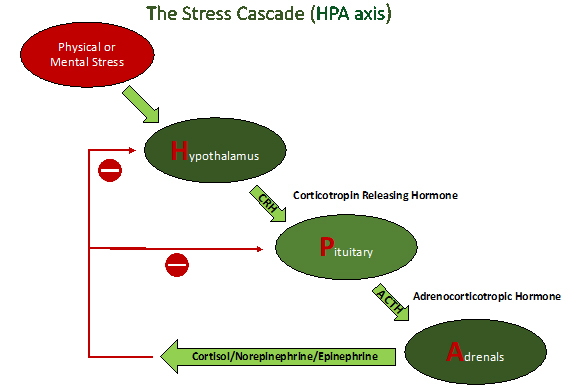CHRONIC STRESS:
KEY NUTRACEUTICALS
TO ADDRESS GLOBAL NEEDS
DIETARY SUPPLEMENTS

Clinical anxiety i.e., stress is a serious health issue globally. Whether mental or physical, stress will have a negative impact on health when it extends over a long period of time. Stress is a major contributing factor for most of the debilitating disease of this century including cardiovascular disease, weight issues, digestive disorders, hormonal disorders, sleep disturbances, memory impairment, chronic pain, headaches and type 2 diabetes. Taking a closer look at the numbers from around the world we can see that stress is not something to be taken lightly:
Clinical anxiety effects 10% of the people in North America, Western Europe and Australia/New Zealand.
Stress is a top health concern for U.S. teens between 9th and 12th grade, psychologists say that if they don’t learn healthy ways to manage that stress now, it could have serious long-term health implications – American Psychological Association
Stress levels in the workplace are rising with 6 in 10 workers in major global economies experiencing increased workplace stress. With China (86%) having the highest rise in workplace stress – The Regus Group
Approximately 13.7 million working days are lost each year in the UK as a result of work-related illness at a cost of £28.3 billion per year – National Institute for Health and Clinical Excellence.
As mentioned above, prolonged stress will have a negative impact on many areas of the body. The cycle that stress triggers is like a wheel that can spin out of control. This is best understood when we look at the cycle by taking a closer look at the HPA-axis (Hypothalamus-Pituitary-Adrenal) (Figure 1).
When the body is “stressed” there is a cascade of physiological and biochemical reactions that occur. When a stressor occurs, the hypothalamus (an area in the central part of the brain) sends a signal to the pituitary that the body is under stress. The pituitary then signals the adrenals which produces the hormones / neurotransmitters cortisol, norepinephrine and epinephrine. When the stressor is gone, those same chemicals provide negative feedback to turn the system off. Under chronic stress, this system continues to run with no negative feedback occurring. Cortisol, often referred to as the stress hormone, increases sugar in the bloodstream, enhances your brain's use of glucose and increases the availability of substances that repair tissues. Epinephrine and norepinephrine on the other hand increase your heart rate, elevate your blood pressure and boosts energy supplies. All three of these are beneficial in short moments of stress. Yet, over extended periods of time, elevations of epinephrine / norepinephrine expose the body to cardiovascular health problems, while the elevation of cortisol is linked to weight gain, insulin resistance, elevated blood sugar, decreased sex hormones, decreased cognitive function, digestive disorders and a weakened immune system.

INTRODUCTION
There are many nutraceutical ingredients with clinical substantiation proving their safety and effectiveness for decreasing stress. What is remarkable is that many of these ingredients show positive outcomes beyond the feelings of stress. Most of the secondary effects of chronic stress such as elevated blood pressure, decreased sex hormones, elevated blood sugar, decreased concentration and focus, and weight gain also improved. Addressing stress at the root (HPA-axis) will have a positive impact on the whole body.
Below are some of the top ingredients to be considered for stress formulations. Keep in mind there are three key areas in which to focus our attention: the limbic system (hypothalamus), adrenals, and neurotransmitter support.
NUTRACEUTICALS TO THE RESCUE
DAVID FOREMAN
Herbal Pharmacist | United States

Bio...
David Foreman is a pharmacist, naturopath, author, speaker and media personality known internationally as, “The Herbal Pharmacist”. His background in pharmacy and natural medicine put Foreman in an elite class of health experts. Foreman is highly sought for his abilities as a science engineer, connecting the science world with sales and marketing. Foreman is a graduate of the University of South Carolina College of Pharmacy, and author of, dozens of books including “4 Pillars of Health: Heart Disease” and “Life Begins in the Gut”.

The top ingredients which have shown to support the limbic system are Zembrin®, L-theanine and Lactium®. Studies with Zembrin® showed an impact on the stress center of the brain (limbic system) within two hours of taking the first dose. L-theanine is believed to increase the production of GABA which attaches to the GABA receptors (limbic system) in the brain to help produce a calming effect. Research with Lactium® has shown it has a selective affinity for GABAA receptors in the brain and therefore increases the activity of GABA and like the other two ingredients produces a calming effect without causing drowsiness.
LIMBIC SYSTEM SPECIFIC
When we look at nutraceuticals which support the adrenals, we are usually mentioning adaptogenic herbs. Adaptogens help the body to achieve or maintain ideal balance when exposed to physical and/or mental stressors. We can see by the outcome of the research with three key adaptogens; Ashwagandha (Sensoril®), Bacopa and Rhodiola the impact on reducing most of the long-term effects of stress i.e. decreasing cortisol levels, decreasing blood sugar, improved sex hormones, decreased blood pressure, etc. Since adaptogens have multiple mechanisms of action, they appear to support many areas along the HPA-axis which supports the adrenals. Ashwagandha suppresses stress-induced increases of dopamine receptors and reduces cortisol in the blood stream. It also mimics GABA and enhance serotonin transmission by modulating serotonin receptors. Bacopa also increases GABA levels and normalizes cortisol levels. Rhodiola appears to improve mood by regulating the activity of serotonin, dopamine, and norepinephrine.
ADAPTOGENIC SUPPORT
When the body is under prolonged periods of stress, the ability to manufacture or keep neurotransmitters in balance becomes challenging. Ingredients such as Saffron, Vitamin B-6 and magnesium all play a great role in supporting neurotransmitters shortages and imbalances. Saffron provides neurotransmitter support by modulating levels of brain serotonin, possibly by inhibiting serotonin reuptake, as well as altering levels of dopamine and norepinephrine. Vitamin B-6 impacts the synthesis of GABA and positively impacts the metabolism of serotonin, norepinephrine and dopamine. Magnesium is an important regulator of neurotransmitter signaling—particularly the main neurotransmitters glutamate and GABA.
NEUROTRANSMITTER SUPPORT
When looking to succeed in formulating a product which will have the greatest impact, combining multiple ingredients with differing mechanisms of action would be beneficial. Taking the HPA-axis in consideration, combining ingredients known to impact the limbic system, are adaptogenic and provide neurotransmitter support would give a broad-spectrum of impact to the biochemistry and physiology of the body’s fight against stress. Combining an ingredient which works at the beginning of the stress cascade would slow or halt the eventual impact on the adrenals and reduce the impact of that stressor. Adaptogenic ingredients are thought to impact multiple areas along the HPA-axis and therefore can provide indirect and direct effects on the impact of stress. Finally, using ingredients to support neurotransmitter production and balance will provide much needed support for the nervous’ system involvement in all of the potential symptoms and conditions that arise from chronic stress. Combining will give a powerful 1-2-3 punch to the effects of stress.



